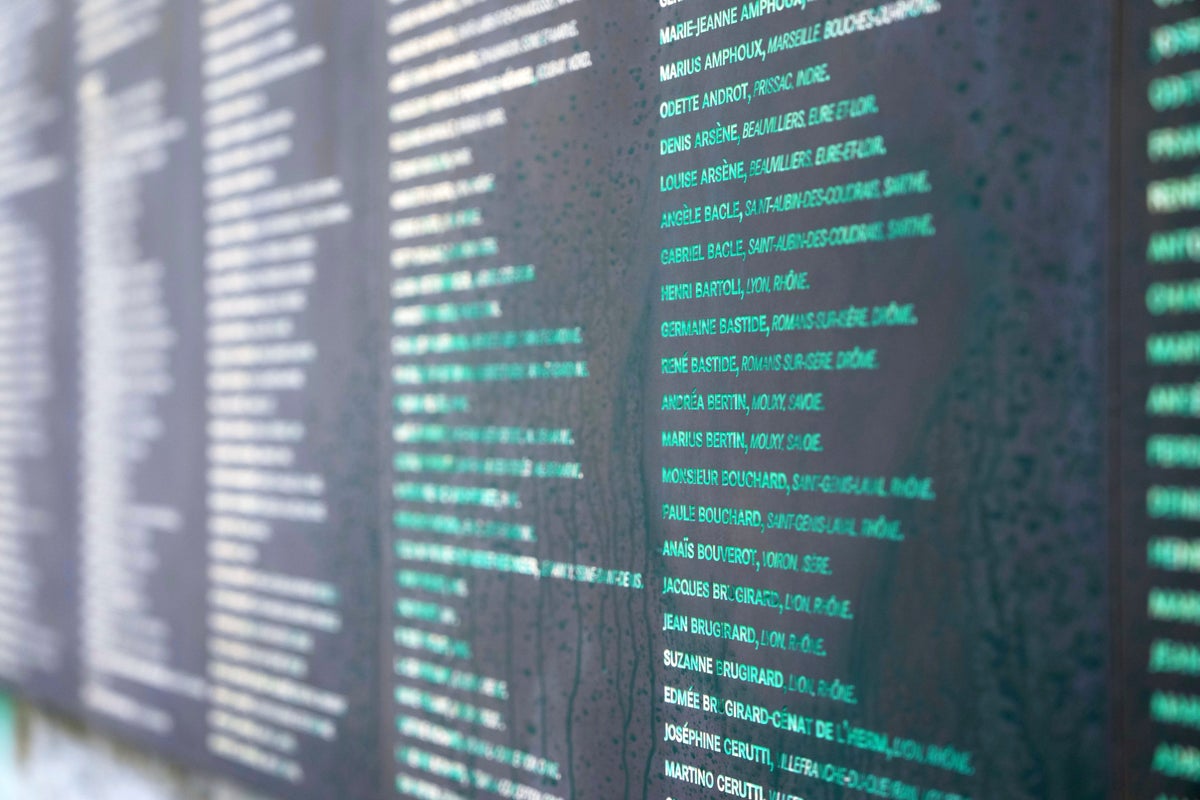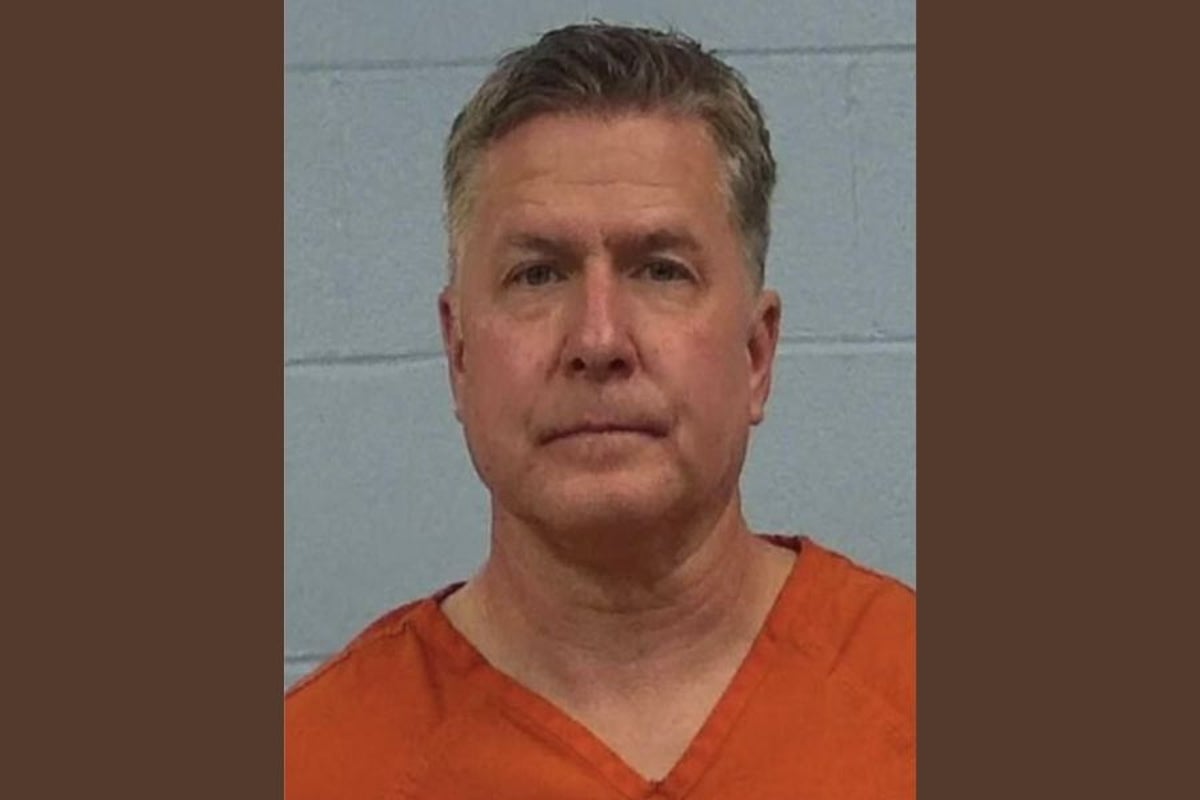Donald Trump set off another social media eruption on Tuesday when he posted on his money-losing Truth Social site, “What Valdimir Putin doesn’t realize is that if it weren’t for me, lots of really bad things would have already happened to Russia, and I mean REALLY BAD. He’s playing with fire!” Here apparently was evidence from the horse’s mouth that Trump has long been playing nice with and protecting the tyrannical Russian leader and war criminal. There were, of course, no details.
Trump was reacting to Russia’s recent escalation of deadly drone and missile attacks on Ukraine—the largest bombardment of the war targeting Ukrainian cities. These assaults marked the first time since Putin invaded Ukraine over three years ago that Moscow has drawn opprobrium from Trump. Two days earlier, he had expressed a similar sentiment, stating, “I’ve always had a very good relationship with Vladimir Putin of Russia.” But in this post he groused that Putin “has gone absolutely CRAZY!” and was “needlessly killing a lot of people…for no reason whatsoever.” He declared that if Putin wants “ALL of Ukraine” that “will lead to the downfall of Russia!”
Did these messages signal some sort of pivot for Trump? Who knows with him? Trump could just as easily in the middle of the night zap out a post inviting Putin to his big, beautiful upcoming military parade in Washington, DC. But these posts have returned to the spotlight the curious relationship between Trump and Putin, and any such assessment has to include a fundamental fact that has been memory-holed and generally absent from the national political conversation: Trump initially won the presidency partly because Putin covertly attacked the 2016 election.
Since he returned to the Oval Office, Trump has generally acted in sync with his longstanding affinity for Putin. He badgered and threatened Ukrainian President Volodymyr Zelenskyy, blaming him for the Russia-Ukraine war that was launched by Putin, and repeatedly expressed sympathy and support for Putin, even as Russian forces bombed civilian targets and continued kidnapping thousands of Ukrainian children. It seemed rather obvious that Trump wanted the war to end not because he was outraged by Putin’s vicious and vile assault on democracy and decency but so he would be free to work with the Russian autocrat for whom he has expressed admiration for over a decade.
In 2013, when Trump announced he would be staging his Miss Universe contest in Moscow—a venture that would earn him several million dollars thanks to the event being underwritten by a Putin-friendly oligarch—he asked, via a tweet, if Putin, who at that point was ratcheting up his repressive ways, would “become my new best friend?” When he was in Moscow for the pageant, Trump, who had long chased deals in Russia (and who had attracted Russian money for his various business projects), was obsessed with meeting with Putin. No tete-a-tete transpired. In subsequent years, he often hailed the Russian (“strong,” “smart”), and he periodically sought to develop a Trump tower in Moscow—a project he secretly pursued while running for president in 2016. (His personal attorney, Michael Cohen, even sought assistance from Putin’s office for the deal, which eventually fizzled.)
Trump has for years been yearning for an out-in-the-open bromance with Putin—perhaps like the profitable relationships he has forged with the leaders of Saudi Arabia, Qatar, and other nations. But this desire has been impeded by the Ukraine war and also complicated by an inconvenient fact: Trump would not likely have reached the White House without Putin’s assistance.
For nine years, Trump has done a masterful job of suppressing what was perhaps the most important story of the 2016 race: Moscow attacked the US election to assist Trump, and Trump and his crew aided and abetted that assault by denying it was happening. With his relentless ranting about “Russia, Russia, Russia,” the “Russia hoax,” and the “witch hunt”—propaganda enthusiastically embraced and loudly amplified by right-wing media and GOP leaders—Trump has essentially erased from public discourse Putin’s successful subversion of an US election and Trump’s own traitorous complicity.
There have been multiple official reports and much media reporting on this matter. But one only need turn to a bipartisan 966-page report released by the Senate Intelligence Committee in 2020, when it was chaired by none other than Sen. Marco Rubio (R-Fla.), now Trump’s secretary of state and national security adviser, to get a clear picture of what had happened four years earlier:
The Committee found that Russian President Vladimir Putin ordered the Russian effort to hack computer networks and accounts affiliated with the Democratic Party and leak information damaging to Hillary Clinton and her campaign for president. Moscow’s intent was to harm the Clinton Campaign, tarnish an expected Clinton presidential administration, help the Trump Campaign after Trump became the presumptive Republican nominee, and undermine the U.S. democratic process.
There is nothing ambiguous there. Nor was there any uncertainty in the report that Trump and his campaign took advantage of Putin’s clandestine operation and, worse, helped it by claiming it didn’t exist—that is, echoing Putin’s denials and abetting Moscow’s coverup:
While [Russian intelligence] and WikiLeaks were releasing hacked documents, the Trump Campaign sought to maximize the impact of those leaks to aid Trump’s electoral prospects. Staff on the Trump Campaign sought advance notice about WikiLeaks releases, created messaging strategies to promote and share the materials in anticipation of and following their release, and encouraged further leaks. The Trump Campaign publicly undermined the attribution of the hack-and-leak campaign to Russia and was indifferent to whether it and WikiLeaks were furthering a Russian election interference effort.
Whether there was any collusion—and the Senate Intelligence Committee’s report did reveal that Paul Manafort, Trump’s campaign chair, secretly met during the race with a Russian intelligence officer who might have been involved in the operation targeting the US election—Trump, at the least, was assisting a foreign adversary as it schemed to sabotage a US election.
The Russian assault in 2016 included several components, including flooding social media with messages meant to exacerbate political discord and boost Trump. What likely had the most impact on the race was the hack-and-release operation, in which Russian cyber-warriors pilfered politically sensitive and occasionally embarrassing emails and documents from John Podesta, chair of the Hillary Clinton campaign, and slipped them to WikiLeaks, which then released them during the final weeks of the campaign—creating a steady stream of bad press that weighed down the Clinton effort in the home stretch.
Given how close the vote was in 2016, a number of events could be considered decisive—such as then-FBI Director Jim Comey’s last-minute revival of the investigation of Clinton’s handling of official email when she was secretary of state. But that list includes the Russian attack. Without it, Trump might not have narrowly won. The country will never know for sure, but Putin got what he wanted: Trump in power
Ever since, Trump has loudly and repeatedly bleated there was no Russian operation that helped grease his way into the White House—and he has avoided accountability for his own act of betrayal. He has gone so far as to say he believes Putin’s phony claims of innocence and to reject the findings of the US intelligence community, which concluded Moscow mounted this assault on American democracy to improve Trump’s chances.
Moreover, Trump has whined that both he and Putin have been victimized by the assorted Trump-Russia investigations. During his infamous meeting in the Oval Office with Zelenskyy on February 28, Trump evinced sympathy for Putin, suggesting the Russian leader had been unfairly tainted by these probes: “Let me tell you: Putin went through a hell of a lot with me. He went through a phony witch hunt where they used him and ‘Russia. Russia, Russia, Russia.’ You ever hear of that deal?”
Trump was revealing to the public that he felt a powerful bond with Putin, insisting both he and the Russian dictator had been falsely maligned. It was an absurd moment. The facts have long been established: Putin subverted a US election and assisted Trump, and Trump endorsed and advanced Putin’s fake denials. Was Trump now saying this—expressing fellowship with this despotic warmonger—out of a sense of loyalty to him or gratitude? Does Putin have any leverage over him? Or has he deluded himself into believing that Putin did not intervene in the election so he can regard his victory as unstained? Or was he just playing the part of a useful idiot? Whatever the case might be, Trump was voicing heartfelt solidarity with an authoritarian who has committed war crimes. No surprise, he was showing us that what most mattered to him about Putin was not his ruthless war in Ukraine or his totalitarian governance of Russia but their shared plight due to “Russia, Russia, Russia.”
This statement indicated something uniquely bizarre about Trump’s relationship with Putin remains. There’s no telling how that will influence how Trump handles the latest developments in Ukraine and how he responds to Putin’s intransigence and horrific violence. As of this writing, Trump has griped about Putin’s recent bombing. But he has yet taken no steps to further punish Russia. On Wednesday, he downplayed the possibility of slapping Moscow with no sanctions, saying. “If I think I’m close to getting a deal, I don’t want to screw it up by doing that.”
As Trump seeks to implement autocratic and corrupt rule in the United States, his dealings with Putin are likely to be complex and, perhaps, erratic. He hates Zelenskyy. He admires Putin. He wants the war to go away. He foolishly promised he could make that happen in 24 hours. He doesn’t know what to do, and Putin, still aiming to crush a democratic Ukraine, is not helping. The known history between the two—and there could be important aspects that are unknown—is complicated and still puzzling. But as pundits, politicians, and voters assess how Trump is faring with all this, they ought to keep foremost in mind that he’s sitting in the White House partly because of Putin’s skullduggery. That’s the original sin of the Trump presidencies, and many in Ukraine and America are bearing its consequences.















